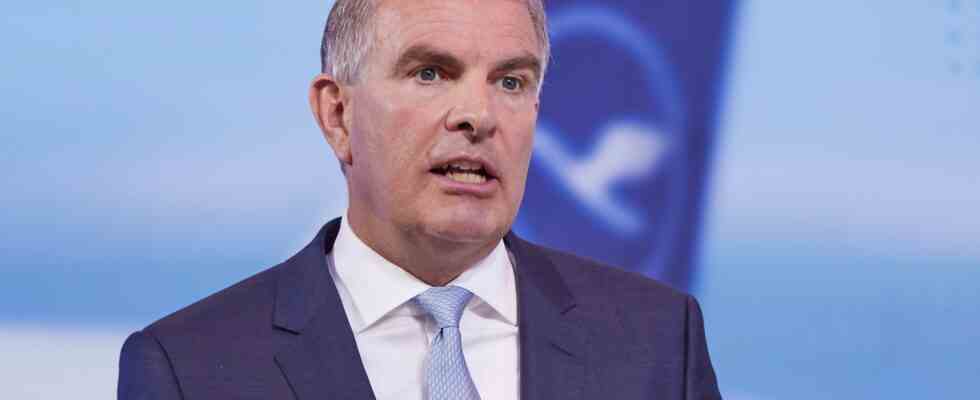Status: 03/03/2023 06:00 a.m
Lufthansa has recently flown through a lot of ups and downs – with CEO Spohr at the top. In his third term of office, he wants to continue pursuing his strategy: international growth and being at the forefront worldwide.
The inspectors on the supervisory board had not left any doubts in the past few weeks. Lufthansa boss Carsten Spohr is the right person at the top of the group from the point of view of the committee – also for a third term. Officially, his current contract runs until the end of the year. The contract extension is now coming early, just before the 56-year-old manager is presenting the balance sheet figures for the past 2022 financial year today. That is a clear signal.
Germanwings crash was the low point
Spohr has led Lufthansa through many serious crises since taking office in 2014. The crash of a Germanwings plane in March 2015 in the French Alps is particularly memorable. 150 people died in the accident. Three years of pandemic kept the group leader on his toes. Spohr was only able to save the group from insolvency through state aid that has since been repaid.
Karl-Ludwig Kley, Chairman of the Lufthansa Supervisory Board, sums up Spohr’s eight years as follows: “During this time, he not only mastered the most difficult crises and challenges, but was also responsible for the three most economically successful years in the history of the Group.” With his experience, competence and personality, CEO Spohr is the right person to master upcoming challenges.
Turbulent travel summer – also this year?
But where there is a lot of light, there is also shadow, as is well known. And so Spohr’s record is not completely untroubled. Because at the beginning of the pandemic, Lufthansa had cut back on staff. A good 30,000 employees worldwide left the group, which travelers felt with all its might last summer. Canceled flights, missing suitcases: The entire system at airports got out of joint in places.
And the effects of the pandemic will not let go of Lufthansa this summer either. The core brand is canceling around 34,000 flights in the summer flight schedule – and thus around ten percent of the flight schedule offered. Up to 500 flights per day will then be eliminated. The main reason for this: The staff is scarce, as before. Incidentally, in the entire aviation industry.
ITA takeover still firmly in sight
The future orientation of Germany’s largest airline will have less focus on the home market. Spohr and his Lufthansa management want to grow in the future in the airline business and open up new markets. The entry with the Italian airline ITA, which used to fly under the name Alitalia, seems within reach. In a second step, there could then be a complete takeover. Exclusive negotiations are currently underway with the government in Rome. A result is expected in the coming weeks.
Italy is considered an important aviation market in Europe. It’s not the Italian home market that seems particularly attractive, because that’s where Ryanair is lurking, and ITA recently had a market share of less than thirty percent. It will be more exciting to see how Lufthansa deals with the largest Italian airport in Rome-Fiumicino and with long-haul flights. Rome would be a good hub for the southern hemisphere.
Situation in the aviation industry is improving only slowly
Consolidation in the airline industry continues to be slow. In addition to ITA, the Portuguese TAP is repeatedly mentioned as another candidate for a takeover. The government wants to privatize the airline, which was completely nationalized during the crisis. A sales process is scheduled to start this year.
Therefore, the topic is also on the table with Carsten Spohr. With a look at the flight connections that TAP offers, it is clear that the Portuguese have a number of attractive routes to South America. Such an offer would also fit well into the Lufthansa strategy.

